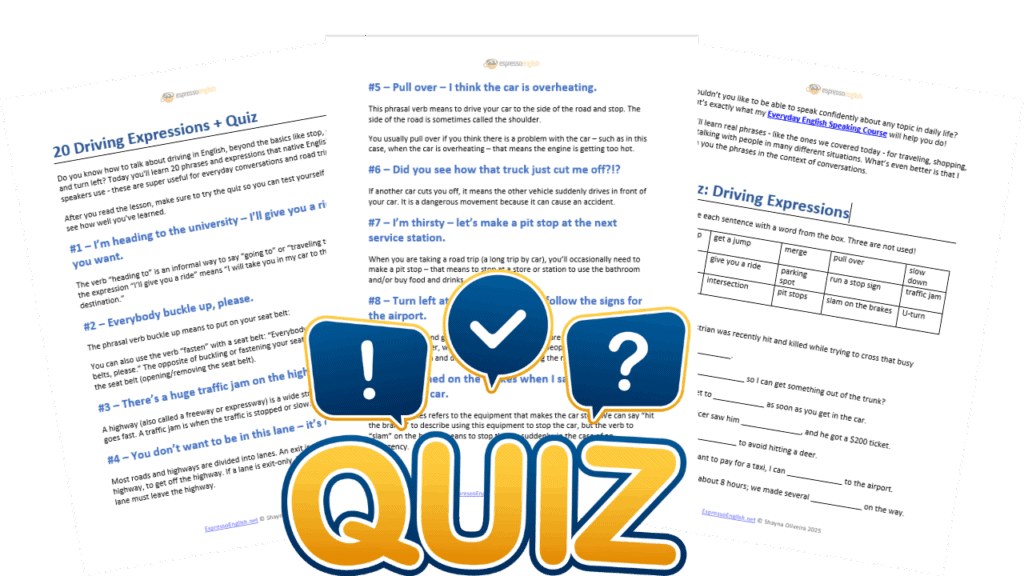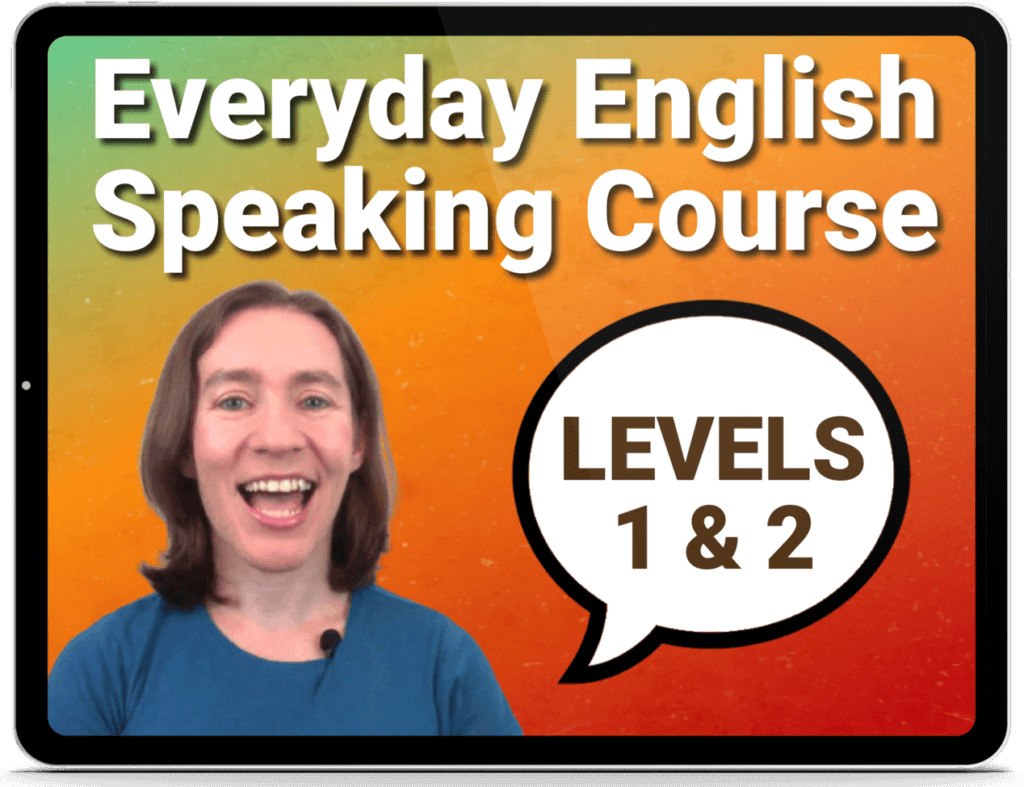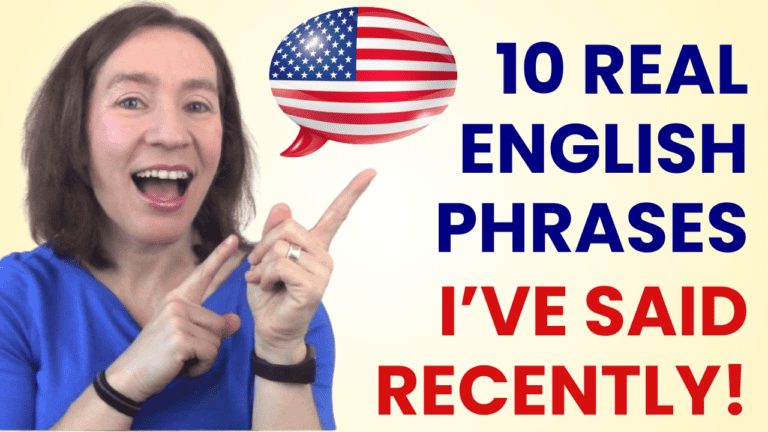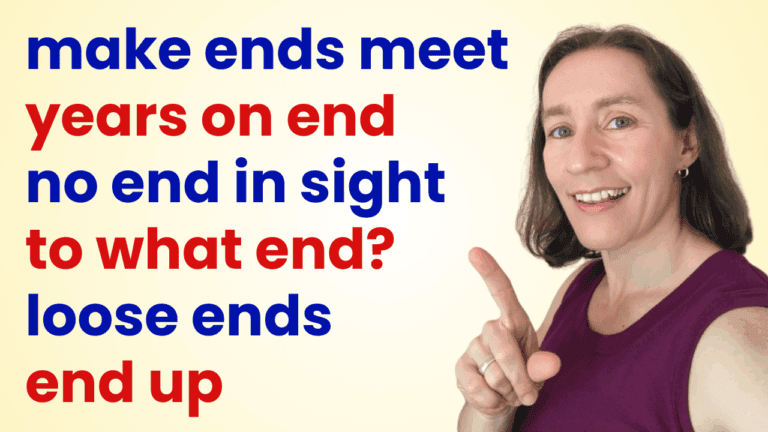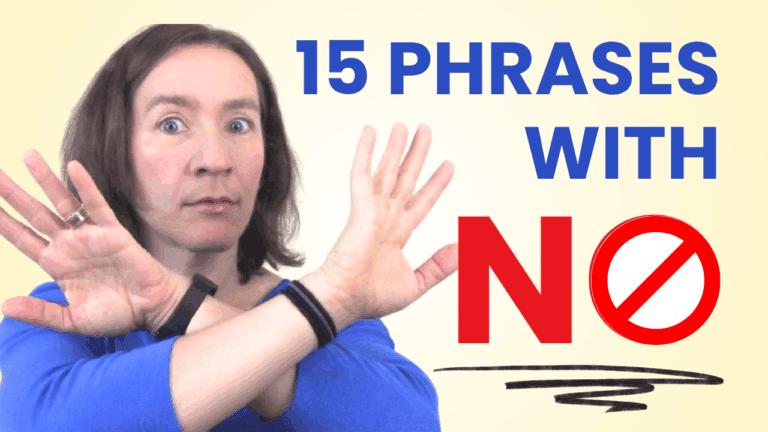
Do you know how to talk about driving in English, beyond the basic words?
Today you’ll learn 20 phrases and expressions that native English speakers use – these are super useful for everyday conversations and road trips!
Make sure to download the free lesson PDF so you can review all the driving phrases and vocabulary – and there’s even a bonus quiz so you can test yourself and see how well you’ve learned.
#1 – I’m heading to the university – I’ll give you a ride if you want.
The verb “heading to” is an informal way to say “going to” or “traveling to,” and the expression “I’ll give you a ride” means “I will take you in my car to the destination.”
#2 – Everybody buckle up, please.
The phrasal verb buckle up means to put on your seat belt:
You can also use the verb “fasten” with a seat belt: “Everybody fasten your seat belts, please.” The opposite of buckling or fastening your seat belt is unbuckling the seat belt (opening/removing the seat belt).
#3 – There’s a huge traffic jam on the highway.
A highway (also called a freeway or expressway) is a wide street where the traffic goes fast. A traffic jam is when the traffic is stopped or slow.
#4 – You don’t want to be in this lane – it’s exit-only.
Most roads and highways are divided into lanes – for example, the road in the photo above has two lanes. An exit is a road to leave the highway, to get off the highway. If a lane is exit-only, it means that the cars in that lane must leave the highway.
#5 – Pull over – I think the car is overheating.
This phrasal verb means to drive your car to the side of the road and stop. The side of the road is sometimes called the shoulder. You usually pull over if you think there is a problem with the car – such as in this case, when the car is overheating – that means the engine is getting too hot.
#6 – Did you see how that truck just cut me off?!?
If another vehicle cuts you off, it suddenly drives in front of your car. It is a dangerous movement because it can cause an accident.
#7 – I’m thirsty – let’s make a pit stop at the next service station.
When you are taking a road trip (a long trip by car), you’ll occasionally need to make a pit stop – that means to stop at a store or station to use the bathroom and/or buy food and drinks.
#8 – Turn left at the light and then follow the signs for the airport.
The red, yellow, and green lights that control traffic are called traffic lights. However, when giving directions, some people simply say “at the light.”
Information and directions are posted along the road on signs:
#9 – I slammed on the brakes when I saw a child run in front of the car.
The word brakes refers to the equipment that makes the car stop. We can say “hit the brakes” to describe using this equipment to stop the car, but the verb to “slam” on the brakes means to stop the car suddenly, in the case of an emergency.
#10 – Slow down – the speed limit is 55.
There are two phrasal verbs we use to describe change in the car’s velocity – slow down to drive the car slower, and speed up to drive the car faster. Speed is another word for “velocity,” and most roads have a speed limit – the maximum velocity at which you can drive your car.
#11 – You forgot to turn off your blinker after you merged.
The yellow or orange lights on the sides of the car that indicate a left or right turn are called turn signals or blinkers.
You need to activate your blinker to inform other drivers that you plan to turn left, turn right, or to merge – that means to move from one lane to another.
#12 – I wish you’d stop being a backseat driver!
A backseat driver is a person in the car who is not driving, but who criticizes the driver’s abilities or who makes lots of suggestions and gives lots of tips for the driver to improve. Most people think that backseat drivers are really annoying!
#13 – You can make a U-turn at the next intersection.
An intersection is a place where two roads meet or cross, and a U-turn is when you turn the car around and go back in the opposite direction.
#14 – This road is closed; there’s a detour.
A detour is when you have to take a different route to avoid some obstacle – in this case, a closed road. There are usually signs pointing you in the right direction.
#15 – You can drop me off right here at the corner.
To drop someone off means to stop the car and let the person get out.
The opposite is to pick someone up – to let the person get into your car.
#16 – My car wouldn’t start this morning; I had to get a jump from my neighbor.
Saying a car wouldn’t start means that the engine wouldn’t turn on. This can happen when the car’s battery is dead.
To get a jump is to connect cables from another car’s battery to your car’s battery, to give it the power to start.
#17 – I ran over some broken glass and got a flat tire.
We use the phrasal verb run over when a car passes over something on the ground – in this case, broken glass.
The result? It made a hole in the tire which let the air out, resulting in a flat tire. You’ll need to change the tire and put on the spare tire (the extra tire usually kept in the trunk for emergencies like this).
#18 – That guy just ran a red light!
To run a red light or run a stop sign means to drive through it without stopping like you’re supposed to. Obviously, this can cause an accident.
#19 – There’s a spot over there, but you’ll need to parallel park.
A place to park the car is called a “parking spot” or just “spot” for short. Parallel parking is when you need to maneuver the car into a spot on the side of the road. Many people find this a little tricky!
#20 – Hop in – let’s hit the road!
“Hop in” is an informal way to invite someone into your car – and saying “let’s hit the road” means “let’s start traveling by car.”
I hope you’ve enjoyed our road trip through these driving phrases used by native English speakers! Were any of them new to you?
Your next step is to download today’s lesson PDF and try the quiz that’s in there.
Wouldn’t you like to be able to speak confidently about any topic in daily life?
That’s exactly what my Everyday English Speaking Course will help you do!
You’ll learn real phrases – like the ones we covered today – for traveling, shopping, and talking with people in many different situations. What’s even better is that I teach you the phrases in the context of conversations.


